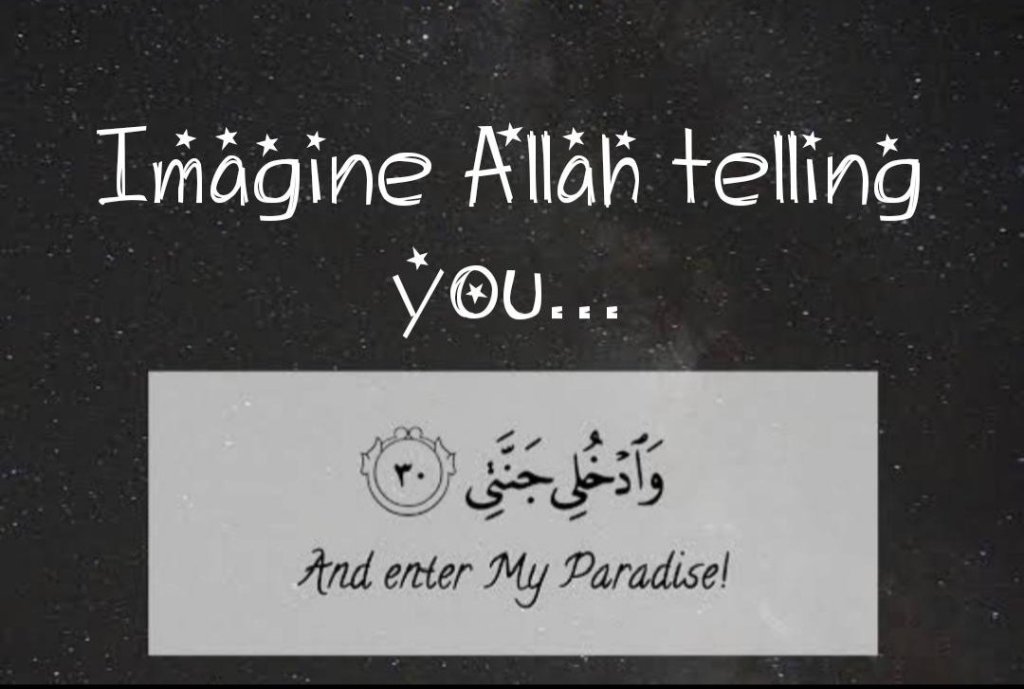
Surah Al-Fajr is a Meccan Surah with thirty verses. Al-Fajr means The Dawn. The Surah is so designated after the word wal-fajr with which it opens.
Its contents show that it was revealed at the stage when persecution of the new converts to Islam had begun in Makkah. On that very basis the people of Makkah have been warned of the evil end of the tribes of Ad and Thamud and of Pharaoh.
Its theme is to affirm the meeting out of rewards and punishments in the Hereafter, which the people of Makkah were not prepared to acknowledge.
Reasoning from man’s own history, the evil end of the Ad and the Thamud and Pharaoh has been cited as an example to show that when they transgressed all limits and multiplied corruption in the earth, Allah laid upon them the scourge of His chastisement.
The people who are so afflicted with an insatiable greed for wealth that they are never satisfied however much they might hoard and amass. This behaviour is criticised and is meant to make people realize as to why the people with such an attitude and conduct in the life of the world should not be called to account for their misdeeds. They will for sure be asked!
The discourse has been concluded with the assertion that accountability shall certainly be held and it will be held on the Day when the Divine Court will be established. At that time the deniers of the judgment will understand that which they are not understanding now in spite of instruction and admonition, but understanding then will be of no avail. The denier will regret that Day. Whereas the obedient ones in the world will reach their successful destiny!

Allah starts the Surah with few oaths out of which this is the beginning one. First of all, it is said: “By Fajr!” Fajr is the breaking of day, i.e. the time when the first rays of the light of day appear in the midst of the darkness of night as a white streak from the east. The word fajr and other words related to it mean to rip and tear something completely. So, fajr can be described as something that tears the night open and allows light to come through. This may not be the brightest time of the morning but that single ray of light is enough to know that the event has begun.
This time of the day is also the beginning of life. Most animals and humans go to sleep at night and as soon as fajr begins birds start chirping and animals come out of their shelters. So, here Allah begins the surah at a time that life begins and takes an oath by it.
Another opinion is that when Allah swears by the morning He is alluding to life after death. Just like the night was dead and fajr is the beginning of life, with every new day Allah is reminding us that he has the ability to bring life after death. So, our sleep is compared to death and our awakening is compared to life and this is a reminder of the resurrection.
Additionally, it is commented that this is the time that darkness is removed and is a reference to the fact that fajr is not just a reminder of the hereafter and the importance of the prayer but also a reminder of the dawn of Islam. Since this surah is a Meccan surah the interpretation could be that although everything now is dark and the future appears uncertain, Islam will eventually be victorious. Allah gives a guarantee that just like fajr rips through the darkness, Islam will remove the darkness of shirk and oppression. Hence, the fajr morning light is a sign of the upcoming victory of Islam after all the hardships faced by the Muslims.
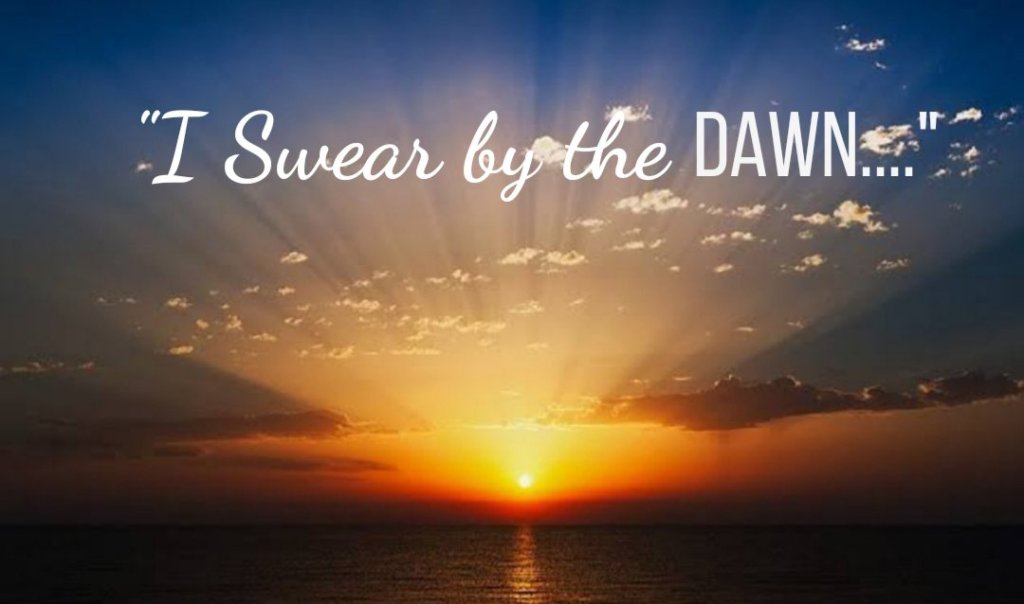

Now Allah swears by the ten nights. There are several views concerning this that what it could mean:
➖ If the context is kept in view, it will become plain that it implies each group of the ten nights among the thirty nights of the month, the first ten nights being those during which the crescent moon starting as a thin nail, goes on waxing every night until its major portion becomes bright; the second group of the ten nights being those during which the greater part of the night remains illumined by the moon, and the last ten nights being those during which the moon goes on waning and the nights becoming more and more dark until by the end of the month the whole night becomes absolutely dark.
➖ The ten nights are last ten nights of Ramadan which are the most blessed nights especially in earning Allah’s forgiveness and in earning the reward of paradise. Also when Quran was revealed too.
➖ The first ten nights/days of of Dhul Hijjah (the month in which Hajj takes place). It is encouraged to fast and sacrifice an animal in the first ten days of Dhul Hijjah in union with the incredible act of worship of the Hajj.
The last ten nights of Ramadan features Laylat Al Qadr – the night in which the Quran was revealed and so the significance of these days from the perspective of the seerah is that it marks the beginning of the revelation and the mission of the Messenger pbuh. Additionally Hajj was the occasion that witnessed the conclusive victory of the Messenger pbuh over the rebellious city of Mecca. So the entire life of Allah’s Messenger pbuh is captured by the symbolic representation of ten blessed nights, the nights marking the beginning of his mission and the end of it. Thus, the two oaths are connected as fajr represents both the dawn of Islam and also the resurrection and Muhammad pbuh is the greatest sign of the coming of the Last Day.
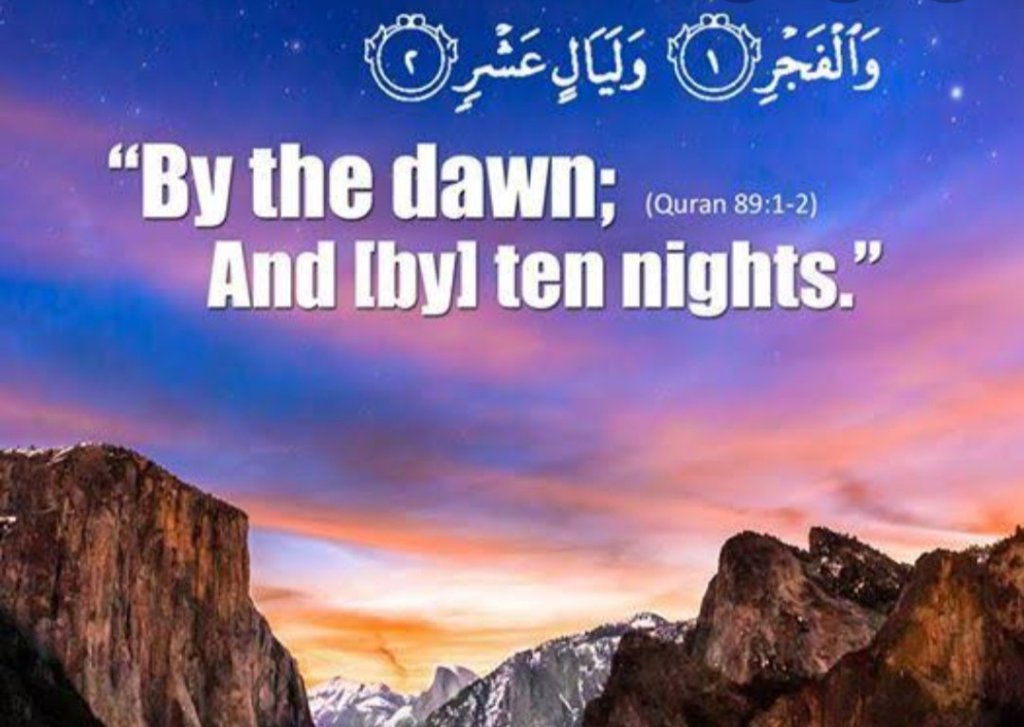

Allah takes the third oath, “By the even and the odd” Even is the number which is divisible into two equal parts, as 2, 4, 6, 8, and the odd the number which is not so divisible, as l, 3, 5, 7. Generally, it may imply everything in the universe, for things in the universe either exist in pairs or as singles. But since the context here concerns the day and the night, the even and the odd mean the alternation of day and night in the sense that the dates of the month go on changing from the first to the second, and from second to the third, and every change brings with it a new state.
Another interpretation of this verse is that Allah has created things in pairs e.g. darkness and light, male and female, the sun and the moon, the ocean and land. So, everything He created, He created in pairs. The only thing that stands alone without a pair is Allah, the One and there is none like or comparable to Him. So Allah swears by the creation and Himself.
This verse can also be referring to the pairing of the Dunia to the Akhirah. Man looks at one part of the pair, the dunia, and fails to appreciate that this life is paired to the next. Allah is absolutely, perfectly fair and just and the next life will address the imbalances of this life through punishment and reward. If you refuse to believe in the next world then you cannot believe in justice and when you stop believing in justice the belief in Allah also disappears. Allah captures an enormous breadth of concepts in very few words, a true measure of the miracle of the Quran.
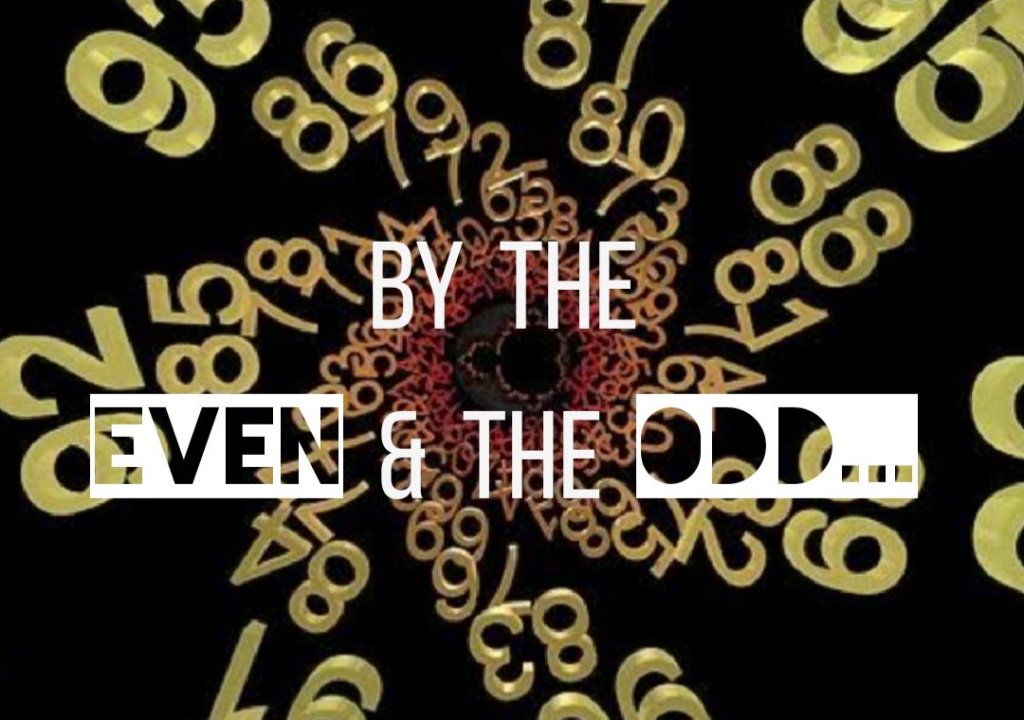

Fourthly Allah swears by the departing night. What an interesting concept! The movement of the night is in relation to night, itself! The oath is taken to the darkness which moves to the light; a moving darkness, not a stationary one. Darkness is frightening when it becomes fixed and immobile, but when there is movement unto the light, it becomes valuable. It is that very moving night which is useful and livable, that is, night alternates-continuously with day, one of great signs of Allah’s divinity.
The first oath of Fajr is connected to this verse. When the night starts to drift away it is known that fajr is on its way. Allah mentions fajr first and the departing of the night later. Thus, the major sign is mentioned before the minor. The major sign is the day of judgement (represented by fajr) however there are indications that the day of judgement is on its way and the world is ending (represented by the night coming to an end) even though the light of fajr has not appeared yet. The coming of the Messenger and his victory is one of the greatest signs of the last day and is captured in the middle two oaths.
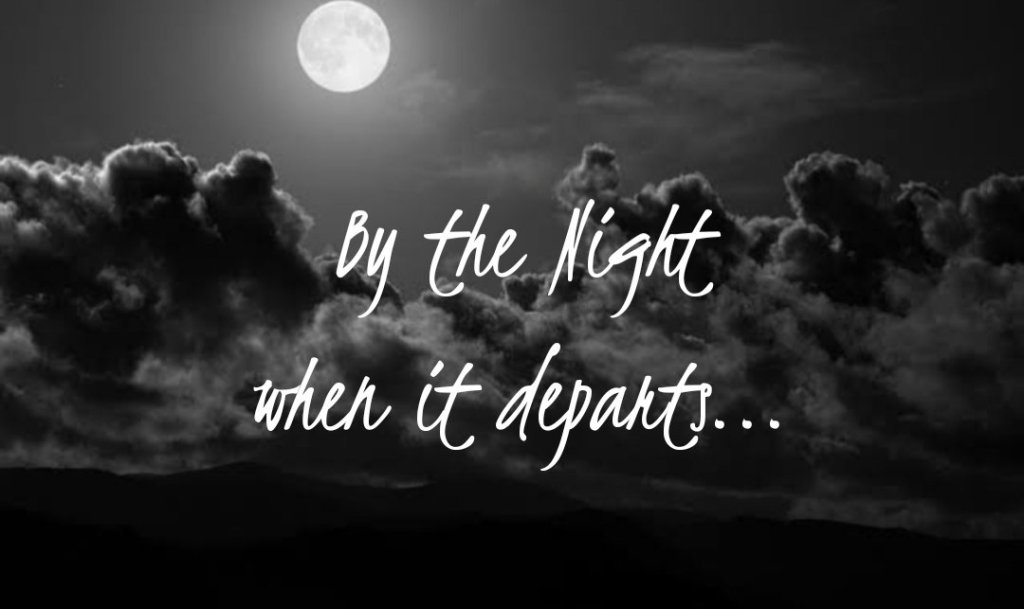

Now Allah makes to the main point that for a man of intellect there’s wisdom in these oaths taken. There was an argument already in progress in which the Prophet pbuh was presenting some thing and the disbelievers were denying it. At this, affirming what the Prophet pbuh presented, was wholly based on the truth. Then, the argument is concluded with the question: “Is there an oath in it for a man of understanding ?” That is, is there need for yet another oath to testify to the truth of this matter. Is this oath not enough to persuade a sensible man to accept that which Muhammad pbuh is presenting?”
And the argument concerned the rewards and punishments of the Hereafter, which the people of Makkah were refusing to acknowledge and the Messenger pbuh was trying to convince them of this by constant preaching and instruction. At this oaths were sworn by the dawn, the ten nights, the even and the odd, and the departing night to assert: Are these four things not enough to convince a sensible man of the truth of this matter so that he may need yet another evidence for it?
All these things point to the reality that an all-Powerful Sustainer is ruling over this universe, and nothing of what He is doing is absurd, purposeless, or lacking wisdom; on the contrary, a wise plan clearly underlies whatever He does. And man will for sure one day meet the Lord and be accountable for his actions!
Allah is essentially saying don’t just move on from these verses but rather reflect on them if you have good intellect and Allah does not normally do this. When He takes an oath He does not come back and say pay attention to those oaths that were mentioned earlier. So this is a point to stop and reflect!
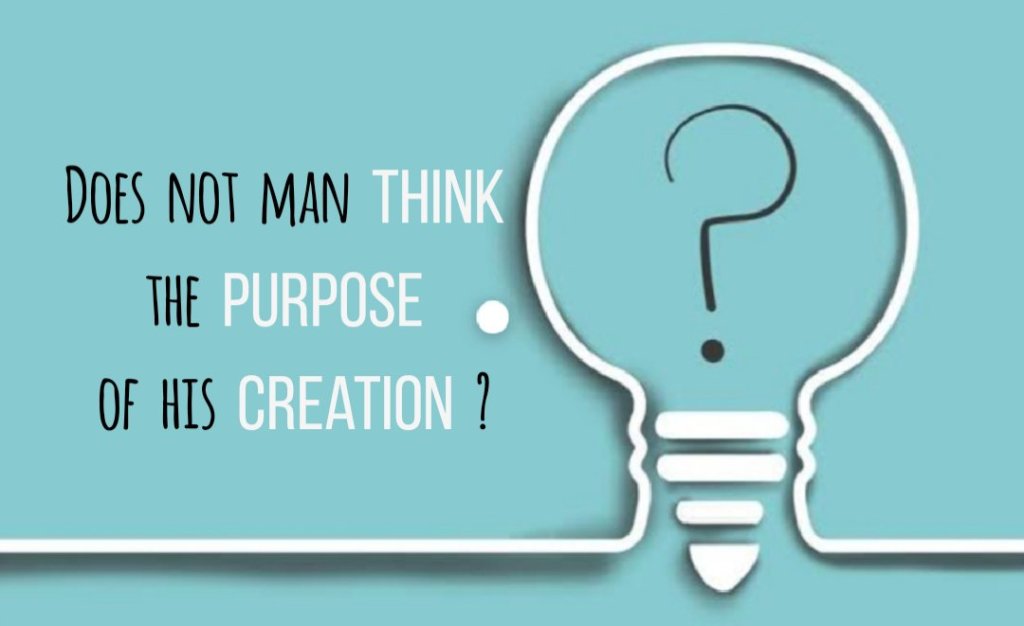
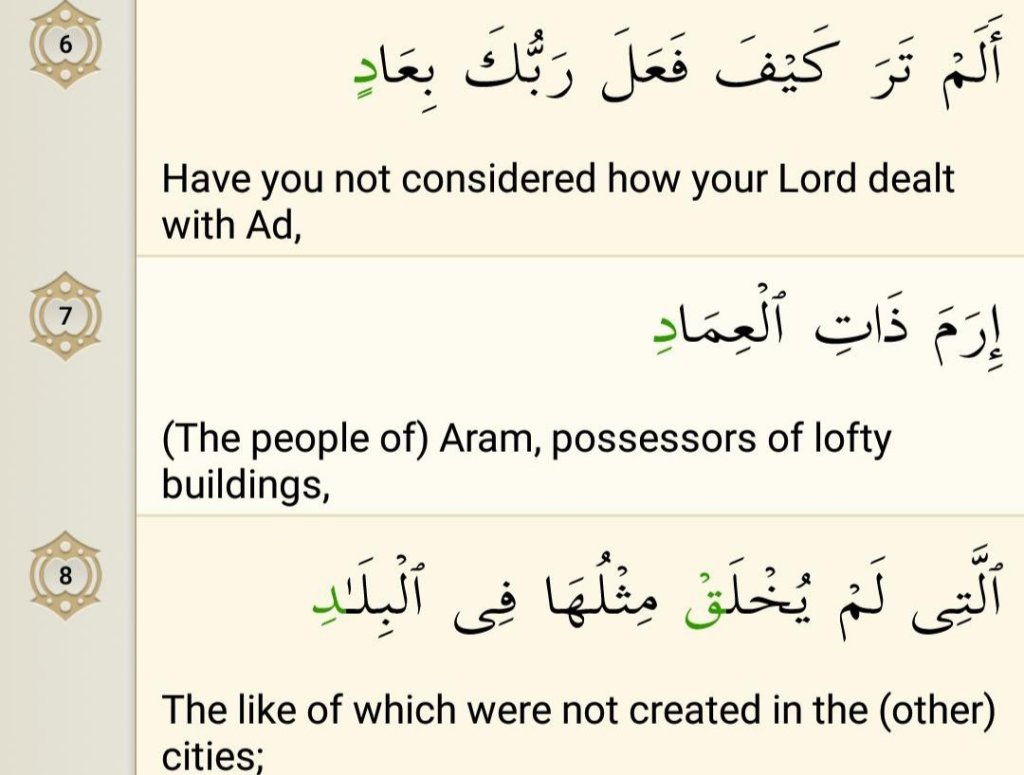
After reasoning out the judgment from the examples of oaths, now an argument is been given from man’s own history for its being a certainty. Allah mentions few well known tribes of history and their ultimate end. It is meant to point out that the universe is not working under some deaf and blind law of nature, but a Wise God is ruling over it, and in the Kingdom of that God only one law, which man describes as the law of nature is not working, but a moral law also is operative, which necessarily calls for retribution and rewards and punishments.
First People of Aad are mentioned. The people of Aad were from Yemen and were from the third or fourth generation after Prophet Nuh a.s. They were a very powerful nation and were known for construction using enormous beams and pillars. They were tall in stature and strong deterring anyone from wanting to fight them. They would arrogantly ask in a famous if there was anyone who could fight them and take them on. They were a matchless people of their time; no other nation in the world could compare with them in strength, glory and grandeur. Allah sent the Prophet Hud a.s to them who they rejected and opposed. Allah then destroyed these people and in this verse asks not what their Lord did to them but rather how He did it to them. The Arabs would pass by the ruins of these people and wonder not at what happened to these people but at how a people so powerful could be destroyed and overcome.
Allah asks his Messenger pbuh to reflect on how his Lord dealt with this people and in this there is both a consolation to the Messenger pbuh and a threat to the disbelievers. How can the Quraysh possibly consider themselves powerful when Allah has dealt with people who possessed greater power than they?
Literally, iram means to make a sign or symbol out of rocks. The verse could be referring to the body strength the people possessed which was like pillars but also to their ability to construct large pillars and beams. The people of Aad and Thamood were well known to the Arabs because their homes were adjacent to the ruins and remnants of these people. This is why Allah mentions these tribes as a reminder over and over in the Quran as the Arabs would be better able to take heed of the reminder. And so all the humanity uptil now anyone going through these verses.
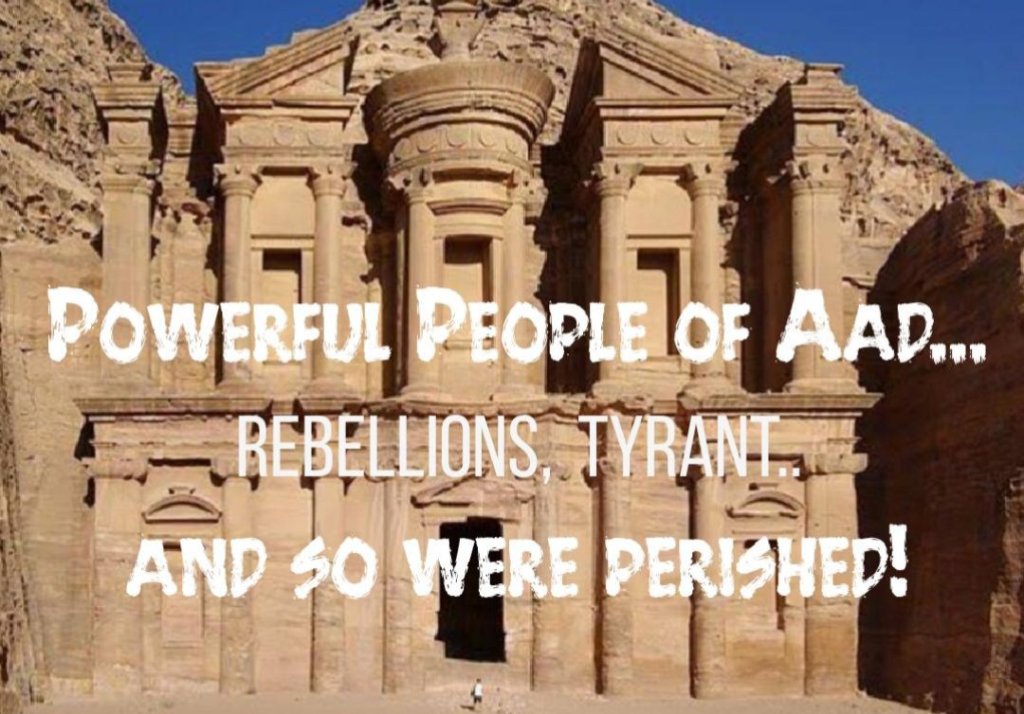
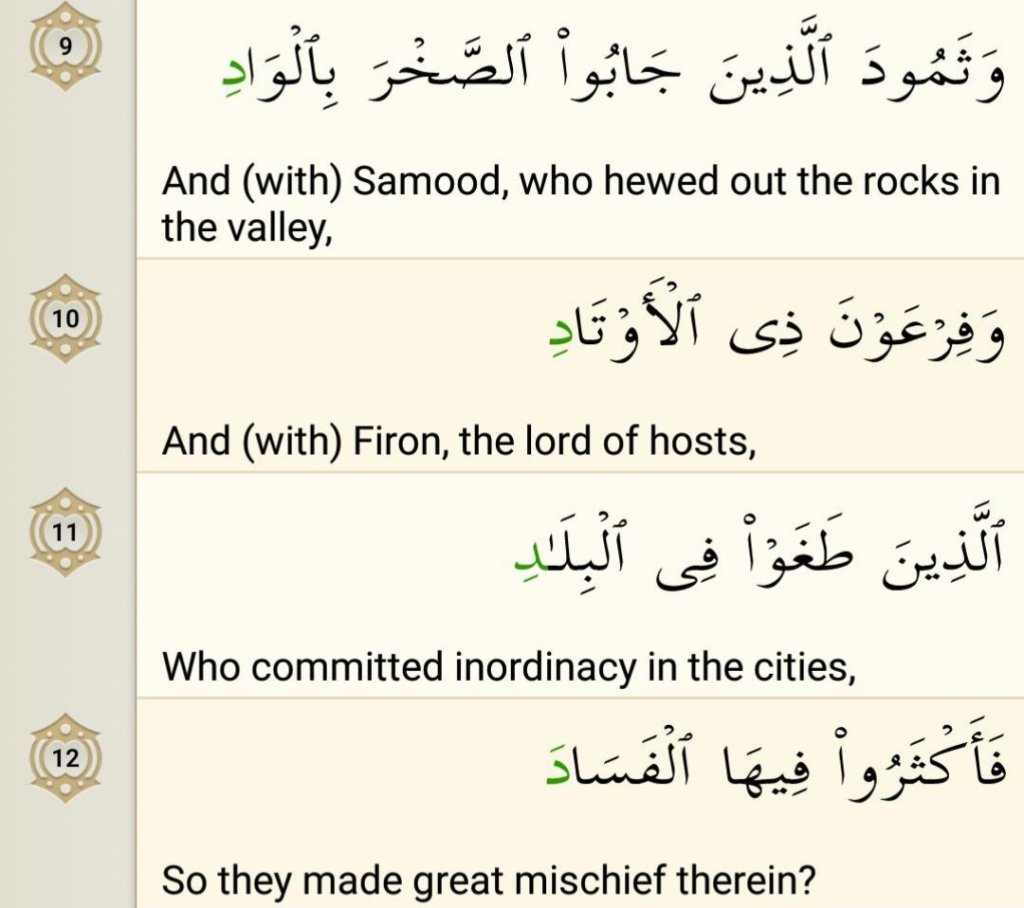
People of Samood…
Allah gives second example of The People of Samood from history, to whom Prophet Saleh a.s was sent. Samood were later descendants of Aad and their lineage is traced to Nuh a.s. The valley Wad-il-Qura, where the Samood carved out dwellings in the mountains, and probably in history they were the first people who started cutting out such buildings into the rocks. Allah is illustrating the power of Samood who had the ability to break through large boulders with their strength alone at a time where there is no heavy machinery or tools. The word waad means more than just a valley and was used for any place where water flowed and so we learn from this that they were at a place where there was irrigation, which in a desert was a sign of prosperity.
Firoun…
Then Allah gives third example of Firoun, the possessor of pegs. Here pegs have 3 meanings:
1. Pegs are used to fasten tents to the ground and when armies travel and set camp they use pegs. Firoun had a huge army and thus is known as the Possessor of Pegs.
2. Secondly, Firoun would torture people by crucifying them and peg their limbs into the wood, as he also did to Asiya r.a, the believing wife of Firoun.
3. Thirdly, in ancient Egyptian history it is apparent that the people prided themselves on their construction. One symbol for their constructions were their pegs, which is depicted in many of their hieroglyphics like the Pyramids.
These people rebelled against Allah not just individually but at a societal level. As a result of this rebellion they caused an increase in corruption. They built these beautiful buildings but at the same time there is huge tyranny. When you rebel (tughyan) in the land injustice and corruption spreads.
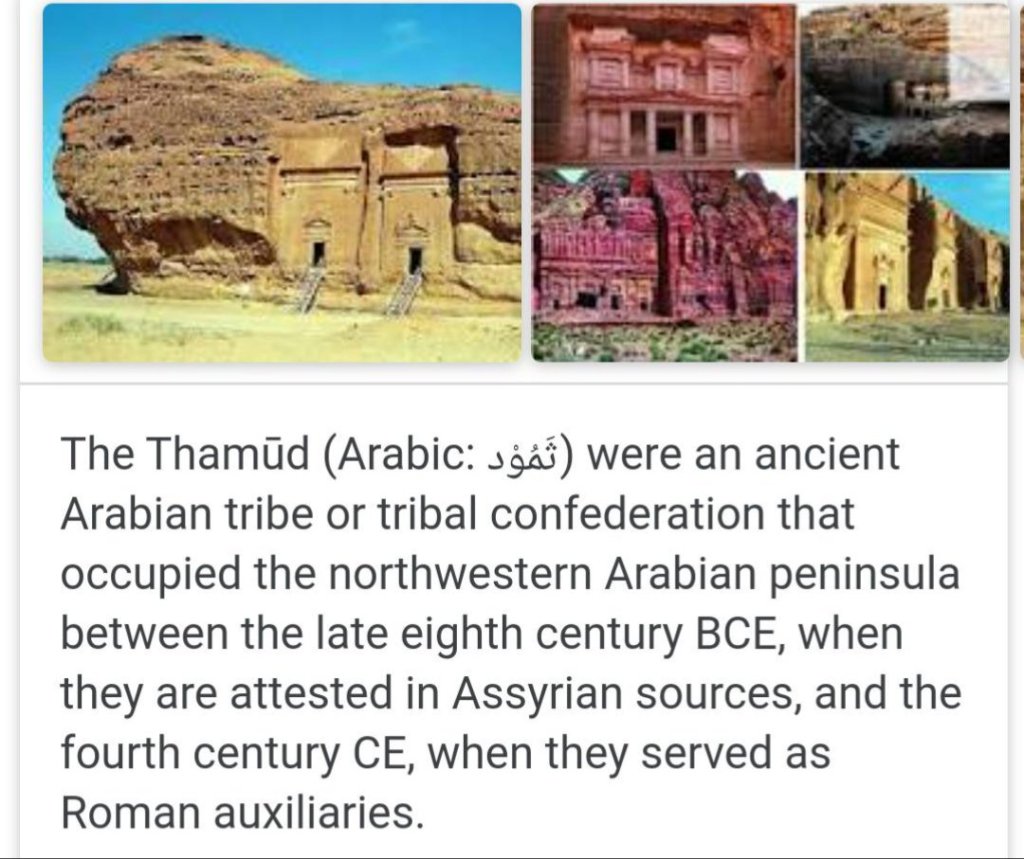
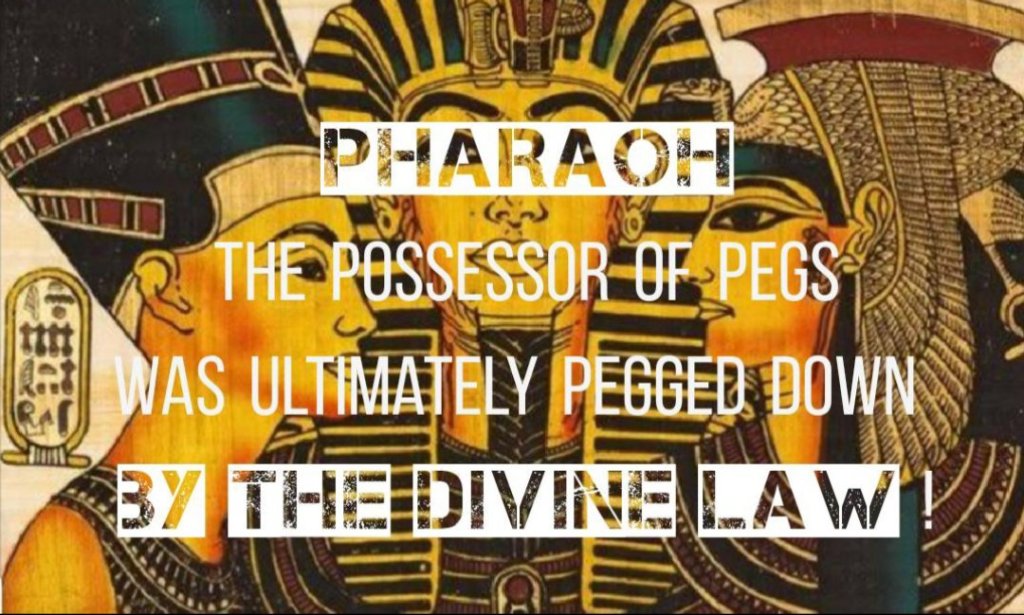
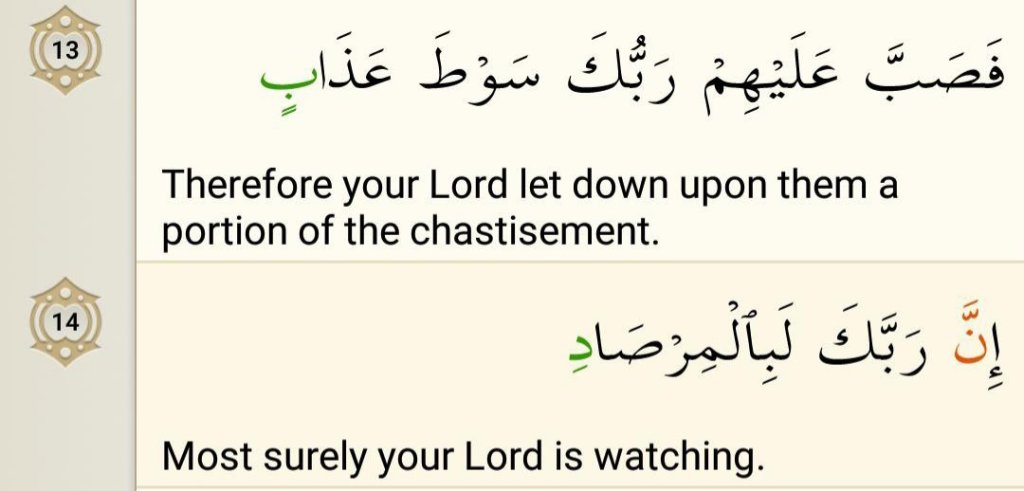
After mentioning the examples from the past, now Allah says that at the point when the land becomes completely corrupt, Allah unleashes His punishment. Those people of past did not believe and disobeyed Allah, and these verses illustrate their painful destiny to show the pagans of Makkah and other similar nations, who were probably much weaker than them, to understand their own status and awaken them from their neglectful sleep.
The Aad were destroyed by a terrible blast of wind,
“And Ad, they were destroyed by a furious Wind exceedingly violent…”
About the Thamood,
“But the Thamood, they were destroyed by a terrible Storm of thunder and lightning…”
The Pharaoh and his men were utterly drowned,
“…and We drowned them all “
Finally, as a warning to all, Allah says that He is watching over all. The word Mirsaad means lie in wait and also an ambush, or a place of observation. It is usually used for a place where persons have to travel through a pass in which someone is lying in wait to strike them. The victim, thoughtless of his fate, comes and falls a prey. The same is the case against Allah of those wicked people who spread mischief in the world and have no sense and fear that there is God above them, Who is watching all their misdeeds. Therefore, they go on committing everyday more and more evils fearlessly until they reach the limit which Allah does not permit them to transgress. At that very moment His scourge descends upon them suddenly.
On the whole, it means that no one should think that he can escape from the divine punishment, because all are under His authority and Power and whenever He wills, He may administer His punishment.
It is obvious that Allah is not confined to a particular place and time and does not lie in wait in a pass, but, it means that His Power is over all transgressors, tyrants and sinners.
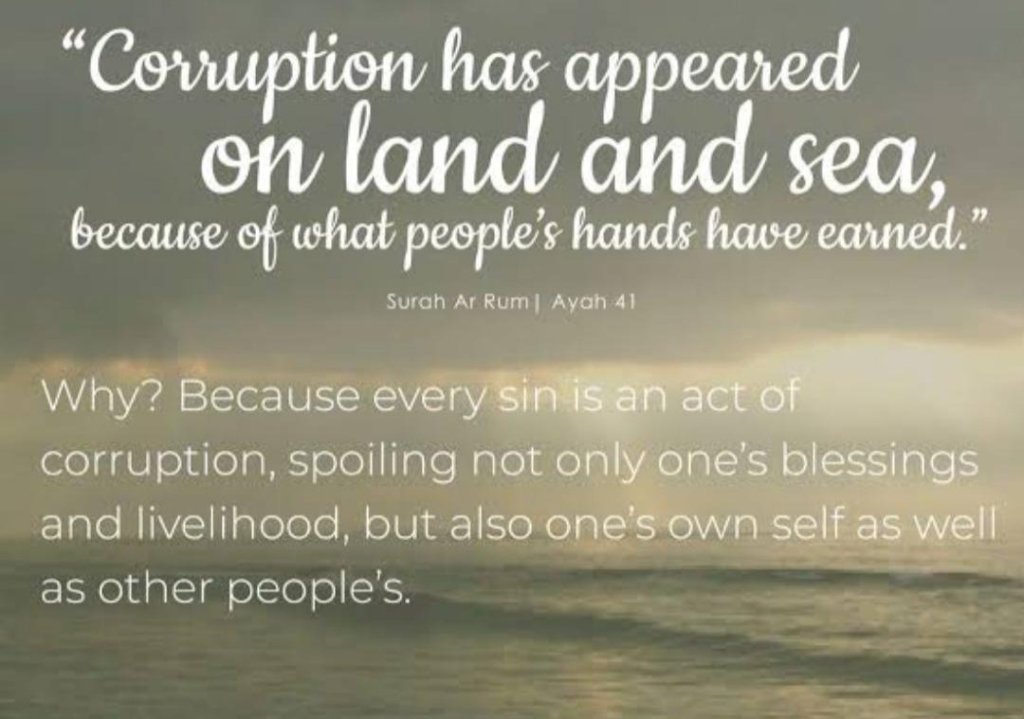
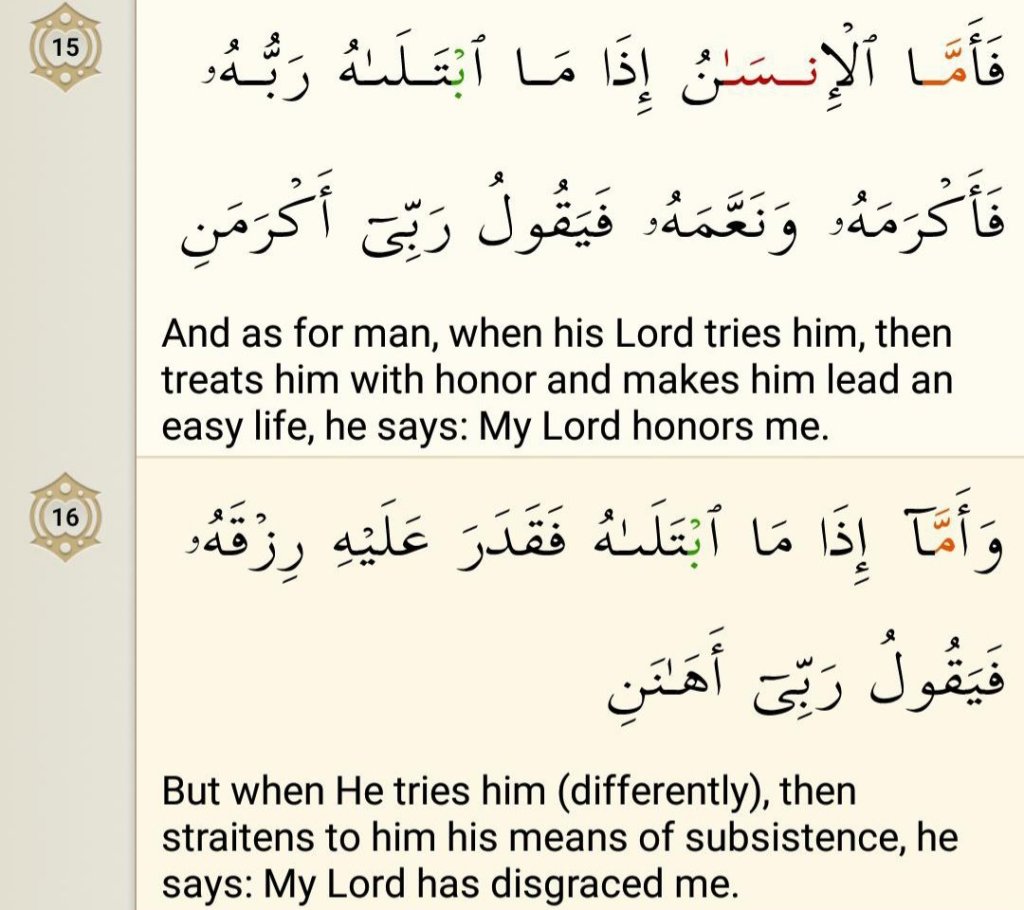
Now Allah mentions the man’s materialistic view of life. He regards the wealth and position and power of this world alone as everything. When he has it, he is filled with pride and says God has honored me; and when he fails to obtain it, he says: God has humiliated me. Thus, the criterion of honor and humiliation in his sight is the possession of wealth and position and power, or the absence of it, whereas the actual truth which he does not understand is that whatever Allah has given anybody in the world has been given for the sake of a trial. If he has given him wealth and power, it has been given for a trial to see whether he becomes grateful for it, or commits ingratitude. If he has made him poor, in this too there is a trial for him to see whether he remains content and patient in the will of God and faces his hardships bravely within permissible bounds, or becomes ready to transgress every limit of morality and honesty and starts cursing his God.
As this is not at all the criterion of honor and disgrace, for the real criterion is the moral good and evil. If you accept that Allah is your master you will understand that anything He gives is a gift, as He owns everything and we were born with nothing, and when He does not give we cannot complain, as it was never ours to begin with. When man does not understand this and finds he no longer possesses his wealth, the first step he takes with shaitan is to complain that Allah has humiliated him. The next step is open rebellion against Allah as this person will question why he should obey Allah after being humiliated. So such an attitude is condemned from its root, as the true believer will always strive hard for excelling in good never keeping position and wealth as a motive but the Raza of Allah!
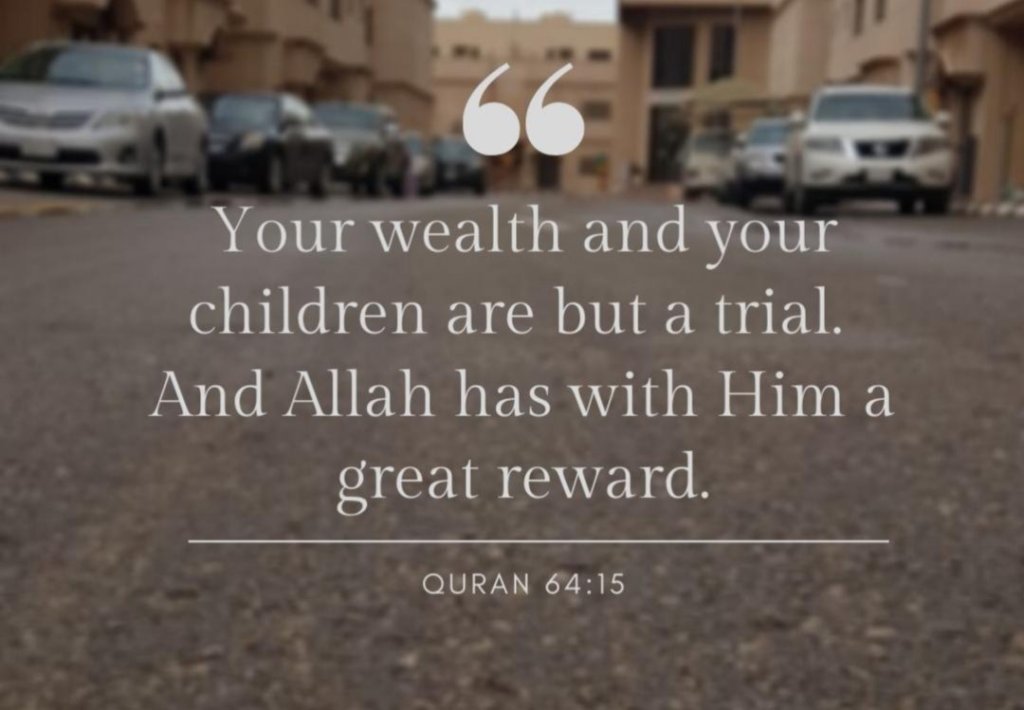
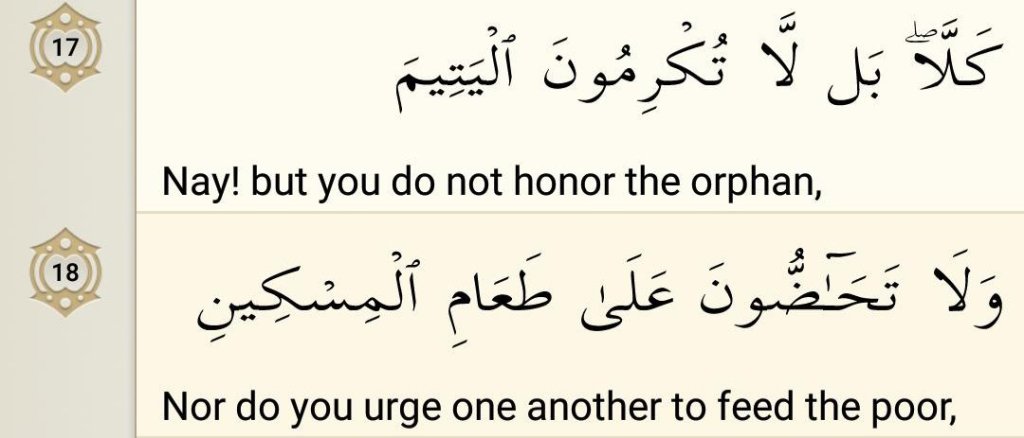
Now attention is paid to the deeds that cause man to be far away from Allah and to be caught in the grips of His punishment. Pointing to the fact that wealth is not evidence to the high rank of a person with Allah, it says:
“Nay! But you honour not the orphans!”
“Nor do you encourage one another to feed the needy!”
It is worth noting that the verse does not speak about ‘feeding the orphans’, but it speaks about ‘honouring the orphans’.
This is because the subject matter about an orphan is not only his hunger, but that sympathy, as a remedy for his deficiencies, is more important than his hunger, alone. An orphan should not be put in conditions which make him feel misery and worthlessness, just because of his being orphaned. He should be respected and honoured so that he does not feel the lack of his parents. That is why in Islam, affection and sympathy for orphans is considered especially important.
Then Allah points out that nobody in your society feels any urge to feed the poor. Neither a man himself feels inclined to feed a hungry person, nor is there among the people any urge to do something to satisfy the hunger of the hungry, nor do they exhort one another to do so. The term tahaddun means ‘to incite anyone’, denoting that feeding the poor is not enough, but people ought to encourage each other to do this good deed until the time when it actually becomes a custom in the society.
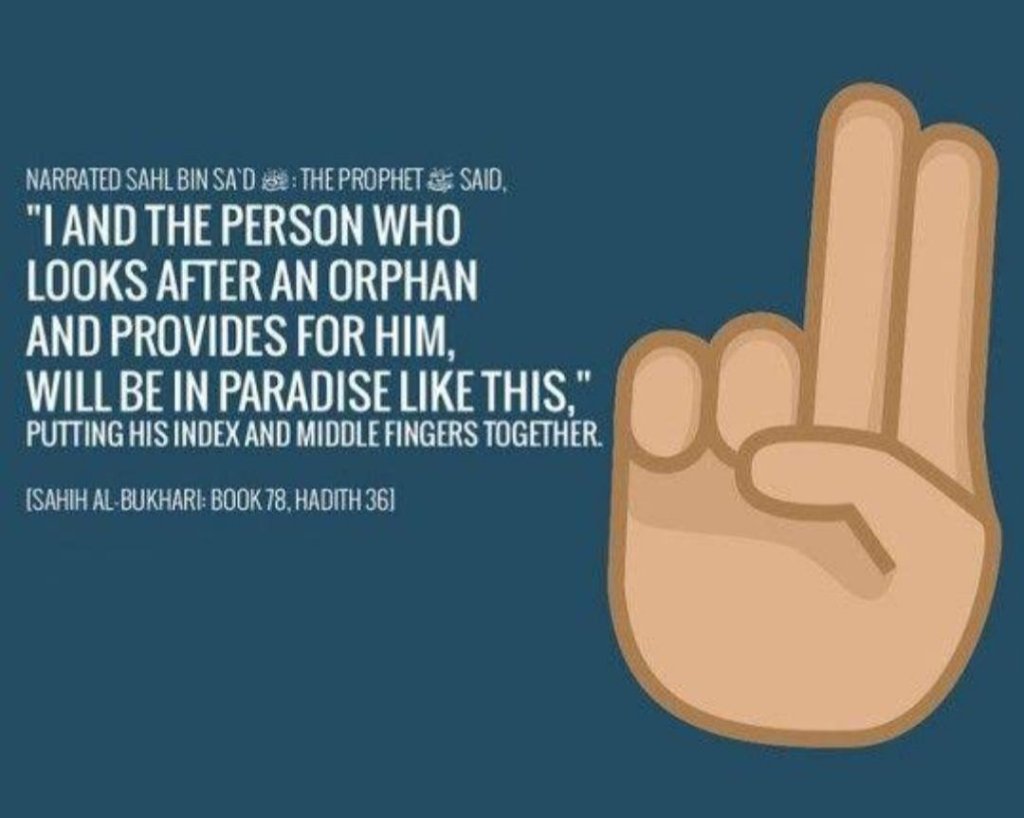
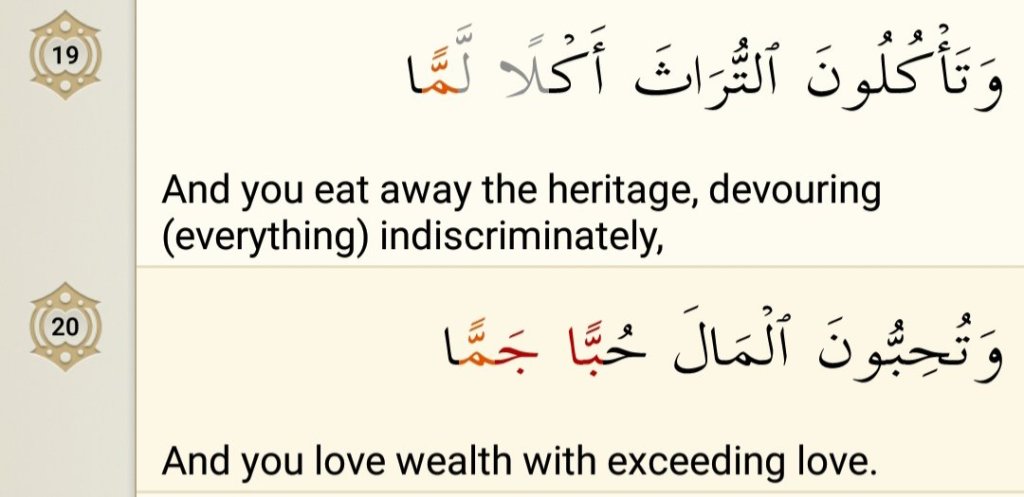
In Arabia, the women and children were as a rule deprived of inheritance and the people’s idea in this regard was that the right to inheritance belonged only to those male members who were fit to fight and safeguard the family. Besides, the one who was more powerful and influential among the heirs of the deceased, would grab the whole inheritance and usurp the shares of all those who did not have the power to secure their shares. They did not give any importance to the right and duty so that they should honestly render the right to whom it was due as a duty whether he had the power to secure it or not. This act in specific for them and in general for all others is condemned.
Then Allah says that man loves wealth with an exceeding love These are worldly mindsets who love amassing wealth. Such people surely do not care whether the wealth is lawful or unlawful and of course, never pay the rights of Allah, or do not pay them completely. Also, such people whose hearts are occupied completely by the love of money, cannot have the love of Allah in their hearts, either.
Thus, after mentioning man’s trial by blessing and disaster, the Quran directs our attention to the fourth great examination in which these sinful people failed. The examinations are about the treatment toward orphans, feeding the needy, devouring the lawful and unlawful interests of inheritance, and finally, the trial of gathering wealth without any regard for the limits.
It is interesting to note that all these trials are monetary and in fact, if one passes the financial trials, other trials will be easy for him.
It is the wealth of this world that causes Faith to decay, and the greatest faults found in human beings are based on this. The real believers are those, who under any condition and with any amount of wealth, are honest and observe the rights of others, whatever they are obligatory or recommended.
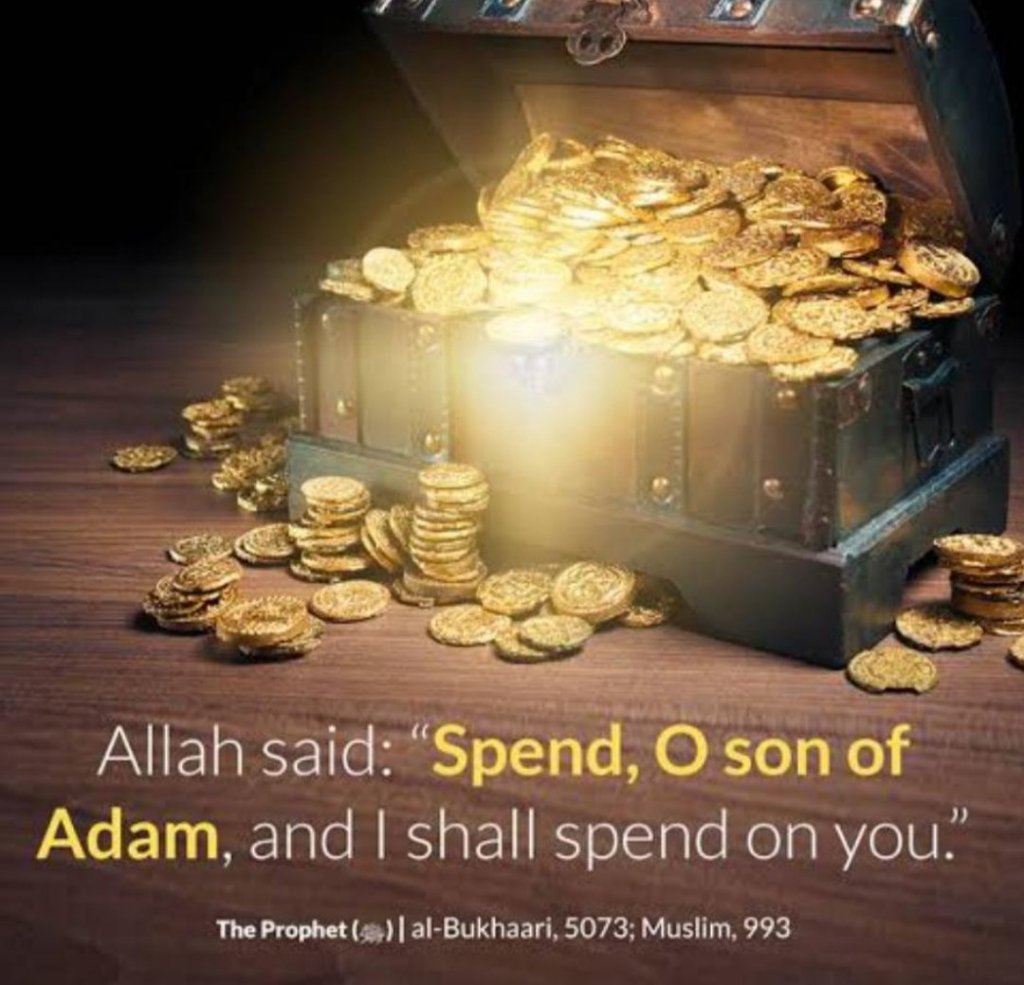
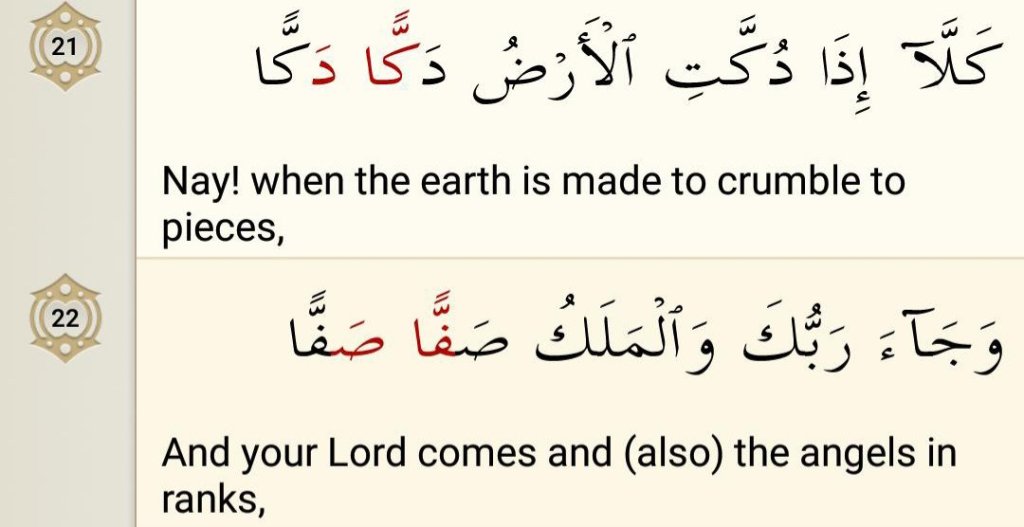
In these verses the oppressors are warned that there will be a Reckoning Day and a violent punishment waiting for them. So, they should expect it. Allah says the day when the earth is crushed to dust, pounded and pounded!
Dakka is to pound and beat a material until it becomes powder and dust so that you can then flatten it out. Allah says that the earth will be pounded and beaten until it turns into nothing but dust and is then spread and flattened out. In the previous verses there was much mention of wealth on the earth and these people think that their wealth will be with them always or that it will stay within their families forever. The same wealth that is being saved and hoarded will be crushed and reduced to useless dust. It is in fact Allah Who will inherit the earth.
At that time the manifestations of Allah Almighty’s power and His majesty and sovereignty will appear fully, as, for example, in the world the arrival of a king in person in the court is more awe-inspiring than the mere array of his forces and chiefs and nobles. Rows upon rows of angels will keep descending and it will seem like a never-ending army and the command of the Lord comes for verifying mankind’s reckoning.
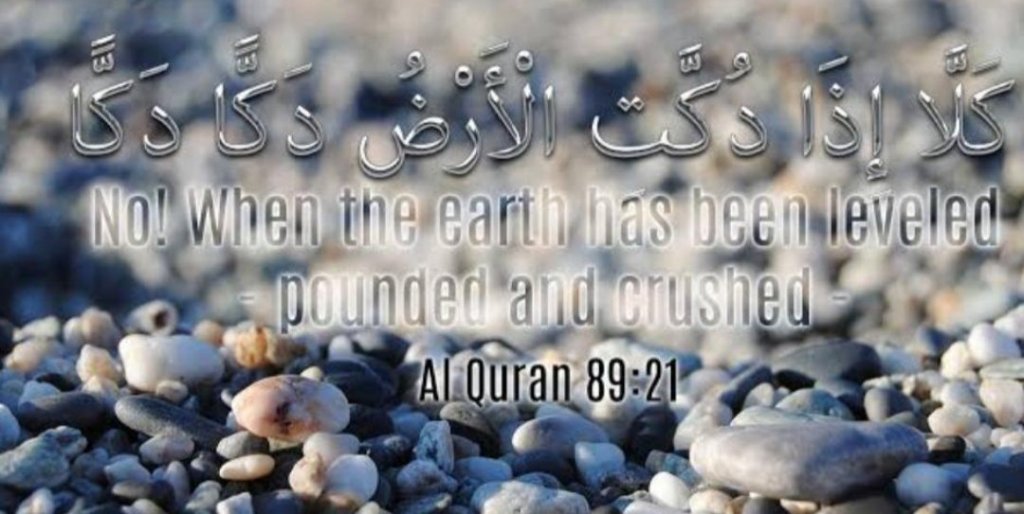
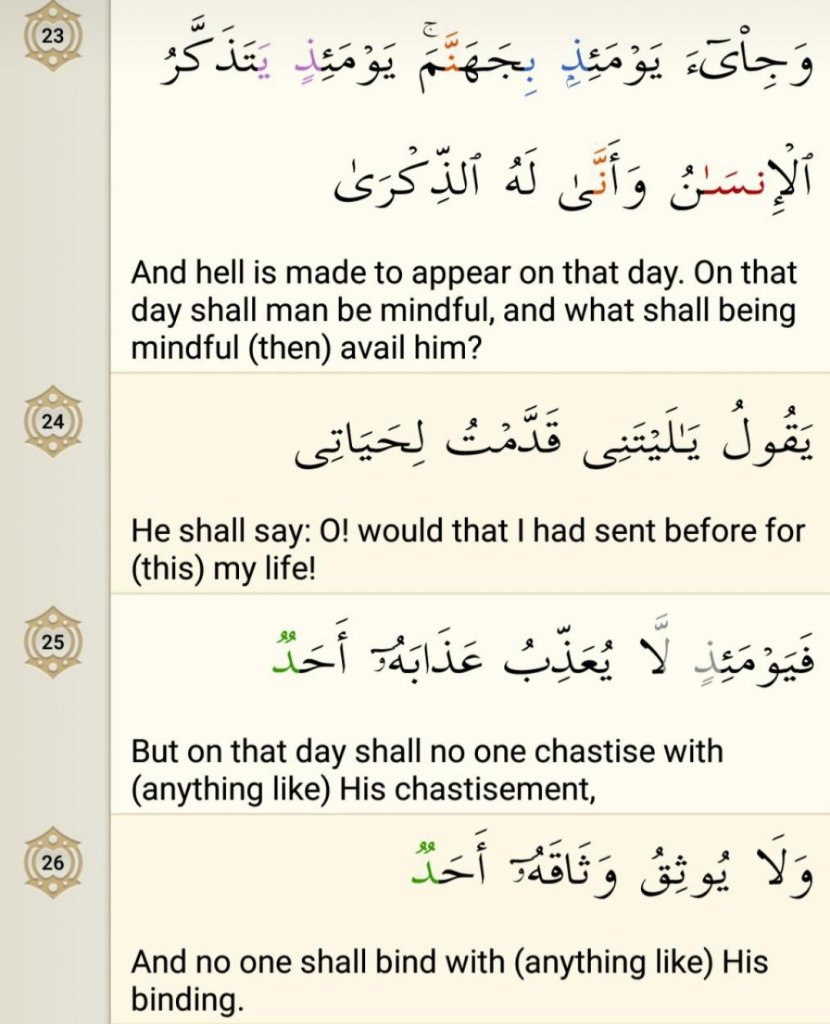
The word jahannam comes from the Persian word jahnaam, which means torture chamber.
Here Allah says that when the torture chamber, The Hell is brought forward, man will remember fully all that did in this world. It could have 2 meanings,
(1) That on that Day man will remember whatever he had done in the world and will regret, but what will remembrance and regretting avail him then?
(2) That on that Day man will take heed and accept admonition: he will realize that whatever he had been told by the Prophets was true and he committed a folly when he did not listen to them; but what will taking heed and accepting the admonition and realizing one’s errors avail one then?
Man will desire to come back to this world and recompense his dark past, but there will be no gate open to return. He wants to repent for his faults, but it is too late. He wishes to do good deeds to repay his evil deeds, but the Records of Deeds will be rolled up.
“For none can punish like His punishment on That Day,”
And why not? Those oppressors, who committed the worst vices in this world, will be punished, on That Day, so that the like of which, had not been seen before!
“Nor can anyone bind like His binding,”
The punishment of Allah can not be compared with anything else. Why should He bind and chastise? Because they oppressed the helpless servants of Allah, in this world as much as they could and persecuted them with the worst of tortures, they themselves should be tightly bound and chastised. Equal recompense for the worst crimes!
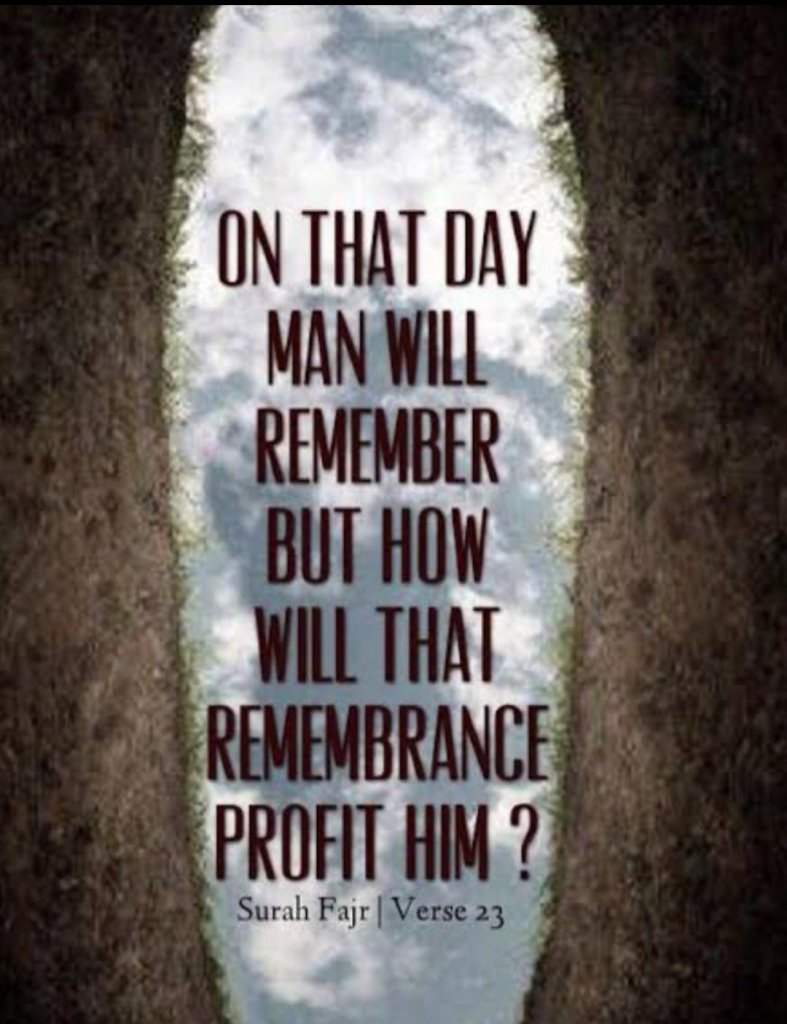
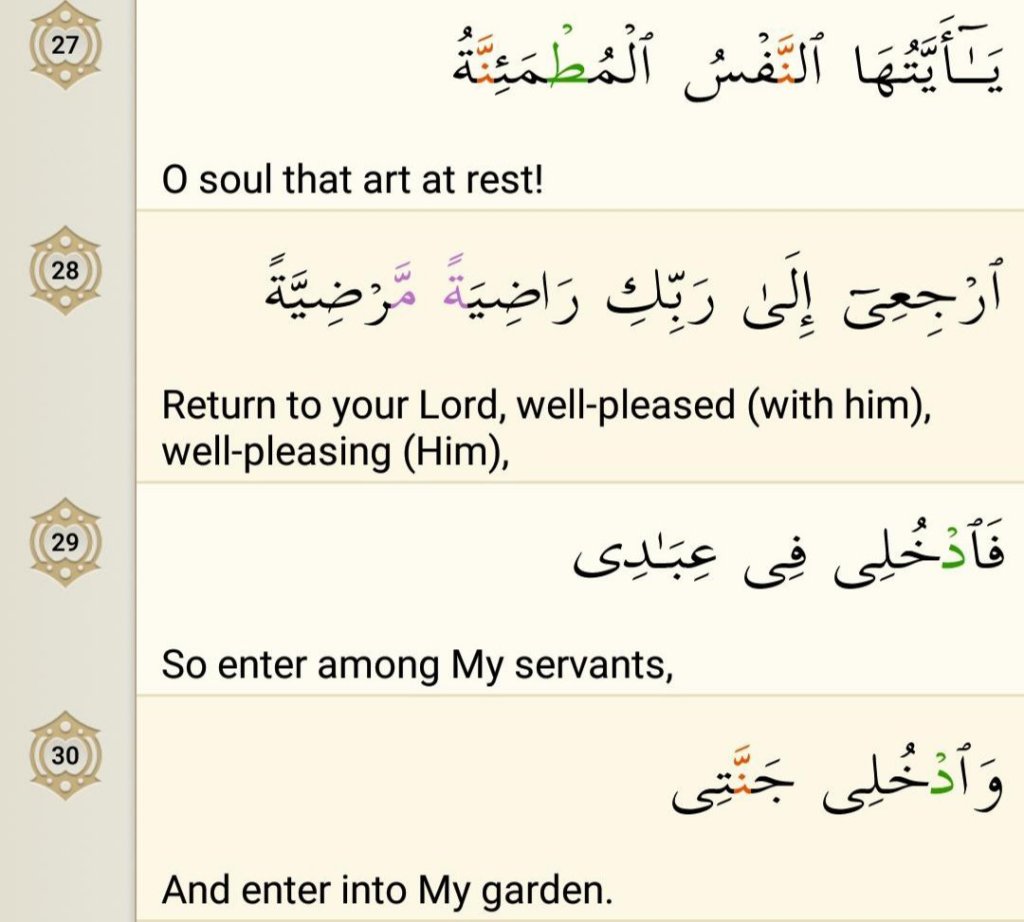
O, You Possessor of the Serene Soul!
In contrast to the previous verses about the terrible chastisement of the transgressors and the lovers of this world in the Hereafter, the following verses are about the calmness of the righteous on Doomsday. The Quran addresses them very kindly and says:
“(It will be said to some) O, you serene soul!”
“Come back to your Lord well-pleased (with Him) and well-pleasing (Him),”
“So enter among My servants,”
“And enter into My Garden.”
How interesting and delightful these words are; full of grace, peace, tranquility and confidence! It is a direct invitation from Allah to the souls who are at peace with confidence, because of their Faith.
Allah invites them to return to Him, to their Possessor, and Cherisher. It is an invitation combined with mutual satisfaction; the satisfaction of the lover with the beloved and the satisfaction of the beloved lover, the one being worshipped.
Consequently, he is being honoured with the crown of servitude and being placed in a position of high rank by Him.
Then, he is invited to enter the Garden with the words,
‘And enter into My Garden’
which denotes that the host is only Allah, Himself!
What An Invitation! What a Host! What Serenity!
Such a soul is both confident in Allah’s promises and is sure of the way he has chosen. He is aware of both excesses and afflictions and also about the disasters and terrible events of this world but has faith in Allah’s Mercy. The most important point here is the soul’s confidence in that, even in the great horror of the Hereafter he is at peace and rest.
Such a servant, with these characteristics who has attained the rank of perfect submission and has reached true servitude which is donating all for Allah’s sake, and has joined ‘the high ranks’ will certainly have no abode, but Heaven.
